
-
-
-
Advance your career
In 3-9 months, gain the skills to break into a new career or take your career to the next level.
10th
View allADVANCED MANAGEMENT PROGRAMME (MANUFACTURING AND OPERATIONS)
View allAGNIVEER MR
View allAGNIVEER SSR
View allALLAHABAD HC RO/ARO
View allAnthropology (B.Sc Anthropology)
View allArtificial Intelligence
View allASSOCIATION OF CHARTERED CERTIFIED ACCOUNTANTS [ACCA]
View allB.A (Hons.) Business Economics
View allB.A Geography
View allB.A Hons (English)
View allB.A. - Public Administration
View allB.A. Economics
View allB.A. English
View allB.A. in Fashion and Textile Design
View allB.A. in Jewellery and Accessory Design
View allB.A. in Political Science
View allB.A. in Visual Communication
View allB.A. Journalism and Mass Communication
View allB.A. LLB
View allB.Com (Hons.)
View allB.Ed or Bachelor of Education
View allB.Ed or Bachelor of Education in Physical Science
View allB.Sc - Computer Science
View allB.Sc - Electronics
View allB.Sc - Forensic Science
View allB.Sc - Genetics
View allB.Sc - Geology
View allB.Sc - Home Science
View allB.Sc - Horticulture
View allB.Sc - Life Sciences
View allB.Sc - Microbiology
View allB.Sc - Statistics
View allB.Sc - Zoology
View allB.Sc in Animation
View allB.Sc in Physiology
View allB.Sc LLB (B.Sc LLB)
View allB.Sc. (Hons.) Chemistry
View allB.Sc. (Hons.) Computer Science
View allB.Sc. (Hons.) Mathematics
View allB.Sc. (Hons.) Physics
View allB.Sc. Agriculture
View allB.Sc. Biochemistry
View allB.Sc. Biotechnology
View allB.Sc. Nursing
View allB.Tech - Automobile Engineering
View allB.Tech - Biochemical Engineering
View allB.Tech - Ceramic Engineering
View allB.Tech - Genetic Engineering
View allB.Tech - Instrumentation Engineering
View allB.Tech - Mechatronics Engineering
View allB.Tech - Mining Engineering
View allB.Tech - Production Engineering
View allB.Tech - Telecommunication Engineering
View allB.Tech - Textile Engineering
View allB.Tech : Mechanical Engineering
View allB.Tech-Artificial Intelligence
View allB.Tech-Chemical Engineering
View allB.Tech-Civil Engineering
View allB.Tech-Computer Science Engineering
View allB.Tech-Electrical Engineering
View allB.Tech-Electronics and Communications Engineering
View allB.Tech-Mechanical Engineering
View allBA LLB (BA LLB)
View allBachelor of Accounting and Finance (BAF)
View allBachelor of Audiology & Speech Language Pathology (BASLP)
View allBachelor of Banking & Insurance (BBI)
View allBachelor of Business Administration (BBA)
View allBachelor of Computer Applications (BCA)
View allBachelor of Design (B.Des)
View allBachelor of Education (B.Ed)
View allBachelor of Education (B.Ed) in History
View allBachelor of Education (B.Ed) Psychology
View allBachelor of Education (BE.d) English
View allBachelor of Education (BEd) Commerce
View allBachelor of Education (BEd) in Physical Education
View allBachelor of Education in Hindi
View allBachelor of Education in Tamil [B.Ed] (Tamil)
View allBachelor of Elementary Education (B.El.Ed)
View allBachelor of Financial Markets (BFM)
View allBachelor of Fine Arts
View allBachelor of Management Studies (BMS)
View allBachelor of Mass Communication (BMC)
View allBachelor of Mass Media (BMMC)
View allBachelor of Multimedia Communication (BMMC)
View allBachelor of Optometry
View allBachelor of Optometry (BOPTM)
View allBachelor of Physical Education (B.P.Ed)
View allBachelor of Tourism and Travel Management (BTTM)
View allBachelor of Visual Communication (B.V.C)
View allBachelor of Visual Communication (BVC)
View allBachelor of Vocation (B.Voc) in Software Development
View allBachelors in Banking and Insurance (BBI)
View allBachelors of Commerce and Bachelor of Legislative Law (B.Com LLB)
View allBBA LLB
View allBEd Political Science
View allBIHAR CGL TEST SERIES
View allBIHAR CIVIL COURT
View allBIHAR DAROGA
View allBIHAR PROHIBITION CONSTABLE
View allBOB PO
View allBOB SO
View allBOI SO
View allBPSC HEAD MASTER
View allBPSC SANITARY & WM
View allBusiness Analytics
View allCANARA BANK PO
View allCAT
View allCAT Exam
View allCBI SO
View allCBSE 5
View allCBSE 7
View allCBSE 1
View allCBSE 11th
View allCBSE 12TH
View allCBSE 2
View allCBSE 3
View allCBSE 4
View allCBSE 6
View allCBSE 8
View allCBSE 9TH
View allCBSE CTET
View allCDS
View allCERTIFICATE IN BUSINESS ANALYTICS
View allCertificate Course in Accounting
View allCertificate Course in Banking
View allCERTIFICATE COURSE IN BANKING
View allCERTIFICATE COURSE IN BUSINESS ANALYTICS
View allCERTIFICATE COURSE IN C++
View allCERTIFICATE COURSE IN COMMUNICATIVE ENGLISH
View allCERTIFICATE COURSE IN COMPUTER APPLICATION [CCA]
View allCertificate Course in Fashion Design
View allCERTIFICATE COURSE IN FINANCIAL ACCOUNTING & TAXATION [CCFAT]
View allCERTIFICATE COURSE IN FRENCH
View allCERTIFICATE COURSE IN FUNCTIONAL ENGLISH
View allCERTIFICATE COURSE IN GERMAN
View allCERTIFICATE COURSE IN INFORMATION TECHNOLOGY
View allCertificate Course in Interior Design
View allCERTIFICATE COURSE IN INTERIOR DESIGN
View allCertificate Course in JAVA
View allCERTIFICATE COURSE IN JAVA
View allCERTIFICATE COURSE IN JOURNALISM
View allCERTIFICATE COURSE IN PHOTOGRAPHY
View allCERTIFICATE COURSE IN PHYSIOTHERAPY
View allCERTIFICATE COURSE IN SPANISH
View allCERTIFICATE COURSE IN SPOKEN ENGLISH
View allCertificate Course in Stock Market
View allCERTIFICATE COURSE IN STOCK MARKET
View allCertificate Course in Tally
View allCERTIFICATE COURSE IN TALLY
View allCERTIFICATE COURSE IN YOGA
View allCertificate courses in C ++
View allCERTIFICATE IN ACCOUNTING
View allCertificate in Animation
View allCERTIFICATE IN ANIMATION
View allCertificate in Auto CAD
View allCERTIFICATE IN AUTO CAD
View allCertificate in CAD
View allCERTIFICATE IN CAD
View allCertificate in Cloud Computing
View allCERTIFICATE IN CLOUD COMPUTING
View allCertificate in Computer Application
View allCERTIFICATE IN COSMETOLOGY
View allCERTIFICATE IN DISASTER MANAGEMENT [CDM]
View allCERTIFICATE IN ENGLISH
View allCERTIFICATE IN HINDI
View allCERTIFICATE IN HUMAN RESOURCES
View allCertificate in Information Technology
View allCERTIFICATE IN INSURANCE SERVICES
View allCERTIFICATE IN LABORATORY TECHNIQUES [CPLT]
View allCERTIFICATE IN PROJECT MANAGEMENT
View allCERTIFICATE IN TOURISM AND TRAVEL MANAGEMENT
View allCERTIFICATE IN WEB DESIGNING
View allCertificate in Web Designing.
View allCERTIFICATE PROGRAM IN SUPPLY CHAIN MANAGEMENT
View allCERTIFICATE PROGRAMME IN SALES AND MARKETING
View allCERTIFIED COURSE IN FOOD AND NUTRITION
View allCERTIFIED FINANCIAL PLANNER [CFP]
View allCHARTERED ACCOUNTANT
View allChartered Financial Analyst
View allchinese
View allCISF CONSTABLE/TRADESMEN
View allCIVIL SERVICES
View allCLAT
View allCLAT EXAMS
View allCloud Computing
View allCOMBINED GEO-SCIENTIST
View allCOMBINED MEDICAL SERVICES
View allContent Writing
View allCraftsmanship Course in Food Production
View allCRPF ASI/HC
View allCRPF CONSTABLE TRADESMAN
View allCRPF SI & ASI
View allCS (Company Secretary)
View allCUET
View allCyber Security
View allD.EL.Ed.
View allData Analytics
View allData Science
View allDigital Marketing
View allDiploma in 3D Animation
View allDiploma in Advertising and Marketing
View allDiploma in Airline, Travel and Tourism Management
View allDiploma in Animation and Multimedia
View allDIPLOMA IN ARCHITECTURE ENGINEERING
View allDIPLOMA IN AUTOMOBILE ENGINEERING
View allDiploma in Bakery and Confectionery
View allDIPLOMA IN BIOMEDICAL ENGINEERING
View allDIPLOMA IN CHEMICAL ENGINEERING
View allDIPLOMA IN CIVIL ENGINEERING
View allDiploma in Communicative English
View allDIPLOMA IN COMPUTER ENGINEERING
View allDIPLOMA IN COMPUTER SCIENCE AND ENGINEERING
View allDIPLOMA IN DENTAL HYGIENIST
View allDIPLOMA IN DENTAL MECHANICS
View allDiploma in education
View allDIPLOMA IN ELECTRICAL & ELECTRONICS ENGINEERING
View allDIPLOMA IN ELECTRICAL ENGINEERING
View allDIPLOMA IN ELECTRONICS ENGINEERING
View allDiploma in elementary education
View allDiploma in Engineering
View allDiploma in Event Management
View allDIPLOMA IN FINE ARTS
View allDiploma in Food and Beverage Services
View allDiploma in Gemology
View allDiploma in Hotel Management (DHM)
View allDiploma in Information Technology
View allDIPLOMA IN INFORMATION TECHNOLOGY
View allDiploma in Interior Designing
View allDiploma in Journalism and Mass Communication (DJMC)
View allDIPLOMA IN MECHANICAL ENGINEERING
View allDIPLOMA IN MECHATRONICS
View allDiploma in Medical Lab Technology
View allDiploma in Medical Laboratory Technology (DMLT)
View allDIPLOMA IN MINING ENGINEERING
View allDiploma in Multimedia
View allDiploma in Nursing
View allDiploma in Nursing Care Assistant (DNCA)
View allDiploma in Nutrition and Dietetics
View allDiploma in Office Management
View allDIPLOMA IN PETROLEUM ENGINEERING
View allDiploma in Photography
View allDiploma in Physiotherapy
View allDIPLOMA IN PRODUCTION ENGINEERING
View allDiploma in Radiological Technology
View allDiploma in Rural Healthcare
View allDiploma in Scriptwriting/Creative Writing
View allDiploma in Sound Recording
View allDiploma in Travel & Tourism
View allDiploma in Visual Merchandising
View allDiploma in X-Ray Technician
View allEmail-Marketing
View allEPFO
View allFashion Designer
View allFCI MANAGEMENT TRAINEE
View allFEDERAL BANK PO
View allFull-Stack Developer
View allGATE
View allGraphic Design
View allHARCO BANK
View allHPSC PGT
View allHSSC Canal Patwari
View allHSSC GRAM SACHIV
View allIB SA/EXE & MTS/GEN
View allIBPS CLERK
View allIBPS PO
View allIBPS RRB OFFICE ASSISTANT
View allIBPS RRB OFFICER SCALE 1
View allIBPS SO Exam
View allIBPS Specialist Officer Exams
View allICAR
View allIIBF JE
View allINDIAN AIRFORCE APPRENTICE
View allINDIAN BANK COST GUARD (GD/DB)
View allINDIAN BANK PO
View allINDIAN BANK SO
View allINDIAN ECONOMIC SERVICE
View allINDIAN ER.SERVICES
View allINDIAN FOREST SERVICE
View allINDIAN NAVY AA/SSR
View allIPPB
View allJH POLICE RO
View allJK BANK PO
View allJK POLICE CONSTABLE
View allJob Oriented
View allJSSC EXCISE AND PROHIBITION
View allKG
View allLAKHSMI VILAS BANK PO
View allLDCE
View allLIC AAO
View allLIC ADO
View allLIC HFL
View allLL.M - Criminal Law
View allLL.M - Cyber Law
View allLL.M - International Law
View allLL.M - Labour Law
View allM.A. - Public Administration
View allM.A. in Economics
View allM.A. in English
View allM.A. Political Science
View allM.A. Rural Development
View allM.A.in History
View allM.Sc - Geoinformatics
View allMachine Learning
View allMaster of Education (M.Ed)
View allMaster of Law (LL.M)
View allMaster of Mass Communication (MMC)
View allMasters in Journalism and Mass Communication (MJMC)
View allMasters of Business Administration (MBA)
View allMAT
View allMBA - Communication Management
View allMBA - Customer Relationship Management (MBA CRM)
View allMBA - Environmental Management
View allMBA - Healthcare & Hospital Management
View allMBA - Hospitality Management
View allMBA - Logistics and Supply Chain Management
View allMBA - Materials Management
View allMBA - Media Management
View allMBA - Natural Resource Management
View allMBA - Operations Management
View allMBA - Project Management
View allMBA - Retail Management
View allMBA - Risk Management
View allMBA - Rural Development Management
View allMBA - Sales Management
View allMBA - Sports Management
View allMBA - Sustainable Management
View allMBA - Technology Management
View allMBA-Finance
View allMBA-Hr
View allMBA-Insurance
View allMBA-IT
View allMBA-Marketing
View allMCM: Masters of Computer Management
View allMP PATWARI
View allMP PSC
View allMP TET
View allMPPSC FOREST SERVICE
View allNAINITAL BANK
View allNDA & NA
View allNIOS 10
View allNIOS 11
View allNIOS 12
View allNIOS D.EL.ED.
View allNTPC CBT
View allOICL RECRUITMENT
View allOSSSC RECRUITMENT
View allPATNA HC STENO
View allPGP - Tax Management
View allPost Graduate Diploma in Technical Writing
View allProgramming
View allProject Management
View allRBI ASSISTANT
View allRBI Grade B Exam
View allRRB ASSISTANT LOCO PILOT
View allRRB Group D.
View allRSCB
View allRSMSSB COMPUTOR
View allRSMSSB FOREST GUARD
View allRSMSSB INFORMATICS ASSISTANT
View allRSMSSB JE
View allRSMSSB LAB TECH
View allRSMSSB LIB
View allRSMSSB PATWARI
View allRSMSSB PHARMACIST
View allSBI Clerk
View allSBI Clerk 2024
View allSBI PO
View allSIDBI GRADE A
View allSIDBI GRADE B
View allSocial Media Marketing
View allSoft Skills
View allSoftware Development.
View allSSC SELECTION POST
View allUIIC ASSISTANT
View allUPPSC ASST.PRO
View allUPPSC NURSE
View allUPPSC PROGRAMMER
View allUPSSSC ATA
View allUPSSSC INSTRUCTOR
View allUPSSSC VDO
View allVCBL PO
View allWealth Management
View allWeb Designing
View allXAT
View allDiploma in Cosmetology
View all
-
-
-
Advance your career
In 3-9 months, gain the skills to break into a new career or take your career to the next level.
-
-
-
Advance your career
In 3-9 months, gain the skills to break into a new career or take your career to the next level.
-
-
-
Advance your career
In 3-9 months, gain the skills to break into a new career or take your career to the next level.
Arts And Humanities.
No courses found
Business
View allCertificate
View allComputer Science
No courses found
Graphic Design
No courses found
Health
No courses found
Information Technology
View allLanguage Learning
No courses found
Math And Logic
No courses found
Physical Science And Engineering
No courses found
Social Science
No courses found
Soft Skills
No courses found
-
-
-
Find your new career
Breakthrough pricing on 100% online degrees designed to fit into your life.
CERTIFICATE IN ANIMATION
No subjects found
Get started
-
-
-
Find your new career
Breakthrough pricing on 100% online degrees designed to fit into your life.
CERTIFICATE COURSE IN COMMUNICATIVE ENGLISH
No subjects found
CERTIFICATE COURSE IN FRENCH
No subjects found
CERTIFICATE COURSE IN FUNCTIONAL ENGLISH
No subjects found
CERTIFICATE COURSE IN GERMAN
No subjects found
CERTIFICATE COURSE IN SPANISH
No subjects found
CERTIFICATE COURSE IN SPOKEN ENGLISH
No subjects found
CERTIFICATE IN ENGLISH
No subjects found
CERTIFICATE IN HINDI
No subjects found
CERTIFICATE IN INSURANCE SERVICES
No subjects found
DIPLOMA IN FINE ARTS
No subjects found
Get started
-
-
-
Find your new career
Breakthrough pricing on 100% online degrees designed to fit into your life.
No courses found
Get started
-
-
-
Find your new career
Breakthrough pricing on 100% online degrees designed to fit into your life.
Certificate Course In Accounting
No subjects found
Certificate Course In Banking
No subjects found
Certificate Course In Interior Design
No subjects found
Certificate Course In Stock Market
No subjects found
Certificate Course In Tally
No subjects found
Get started
-
-
-
Find your new career
Breakthrough pricing on 100% online degrees designed to fit into your life.
Certificate Course In Fashion Design
No subjects found
Certificate In Auto CAD
No subjects found
Certificate In CAD
No subjects found
Chinese
No subjects found
Get started
-
Goals
Departments
-
Biology
Academic |
NIOS 11
The NIOS Class 11 Biology course is designed to provide students with a strong foundation in the subject of Biology. The course covers a wide range of topics related to Biology, including the basic concepts of life processes, genetics, evolution, ecology, and more.

Runali Deb Roy
Last Update : 15 May 2023
Key Concepts Covered in CBSE 11th Biology
The NIOS class 11 Biology course is designed to provide students with a strong foundation in the subject of Biology. The course covers a wide range of topics related to Biology, including the basic concepts of life processes, genetics, evolution, ecology, and more. The course is designed to help students develop critical thinking skills, problem-solving abilities, and an understanding of the scientific method.
Throughout the course, students will engage in a variety of activities and assessments, including readings, lab experiments, research projects, and written assignments. The course is structured to provide a comprehensive overview of the subject matter, with each module building upon the previous one. By the end of the course, students will have a strong understanding of the fundamental principles of Biology and the scientific method, which will prepare them for further study in the field or related areas.
Interactive Learning and Practical Applications
- The living world
- Biological classification
- Plant kingdom
- Animal kingdom
- Morphology of flowering plants
- Anatomy of flowering plants
- Structural organization in animals
- Cell: The unit of life
- Biomolecules
- Cell cycle and cell division
- Transport in plants
- Mineral nutrition
- Photosynthesis in higher plants
- Respiration in plants
- Plant growth and development
- Digestion and absorption
- Breathing and exchange of gases
- Body fluids and circulation
- Excretory products and their elimination
- Locomotion and movement
- Neural control and coordination
- Chemical coordination and regulation
Course Content
- What is living?
- Biodiversity and its types
- Taxonomic categories and nomenclature
- Taxonomic aids
- Kingdoms of life
- Monera, Protista, Fungi, Plantae and Animalia
- Viruses and their classification
- Characteristics and classification of algae, bryophytes, pteridophytes, gymnosperms and angiosperms
- Anatomy and functions of the parts of a flowering plant
- Reproduction in flowering plants
- Classification of animals
- Structural organization and functions of different organ systems in animals
- Reproduction, development, and life cycle of animals
- The root, stem, and leaves of a flowering plant
- Inflorescence and flower
- Fruits and seeds
- Meristematic and permanent tissues
- Tissue systems
- Anatomy of root, stem, and leaf
- Animal tissues
- Different organ systems and their functions
- Cell theory and cell structure
- Biomolecules
- Enzymes
- Cell cycle and its regulation
- Mitosis and meiosis
- Movement of water, gases, and nutrients in plants
- Transpiration
- Uptake and transport of mineral nutrients
- Essential minerals for plants
- Deficiency symptoms
- Photosynthesis: the process and its significance
- Factors affecting photosynthesis
- Aerobic and anaerobic respiration
- Respiratory quotient
- Plant growth regulators
- Photoperiodism and vernalization
- Digestive system and its organs
- Digestion and absorption of food
- Respiratory organs in animals
- Mechanism of breathing
- Exchange of gases
- Composition and functions of blood
- The circulatory system in animals
- Excretory organs and their functions
- Urine formation
- Regulation of kidney function
- Types of movement in animals
- Skeletal system
- Muscle structure and contraction
- Nervous system and its parts
- Reflex action
- Sensory reception and processing
- Endocrine glands and hormones
- Mechanism of hormone action
- Control and coordination in plants
NIOS Class 11 Biology
Studying biology in Class 11 can be useful for various reasons:
Career prospects: Biology is an important subject for those who want to pursue a career in the medical field, such as doctors, nurses, pharmacists, and scientists. Studying biology in Class 11 lays the foundation for advanced studies in these fields.
Understanding of the living world: Biology is the study of life and living organisms, and studying it in Class 11 helps students understand the intricacies of the living world around them, including human biology, animal biology, and plant biology.
A better understanding of the environment: Biology is also the study of the environment and the relationships between living organisms and their environment. This knowledge can help students develop a better understanding of environmental issues and how they can contribute to sustainable development.
Personal health and well-being: Biology provides valuable information about human anatomy and physiology, nutrition, and disease prevention, which can help students make informed decisions about their personal health and well-being.
Critical thinking and problem-solving skills: Biology involves the application of scientific methods and critical thinking skills to analyze and solve problems. Studying biology in Class 11 can help students develop these skills, which can be useful in many areas of life.
Course Description
The NIOS Class 11 Biology course is designed to provide students with a thorough understanding of the fundamental concepts and principles of biology. The course is divided into four modules, each covering a specific area of study.
Module 1, "Diversity of Living Organisms," introduces students to the diversity of life on Earth, from microbes to multicellular organisms. This module covers topics such as the classification of organisms, the five kingdoms of life, and plant and animal diversity.
Module 2, "Structural Organisation in Plants and Animals," focuses on the structure and function of plant and animal cells, tissues, and organs. Students will learn about the different types of tissues and organs found in plants and animals, and how they work together to maintain life processes.
Module 3, "Cell: Structure and Function," covers the basic unit of life - the cell. Students will learn about the different types of cells, their structure and function, and the processes that occur within them. This module also covers topics such as cell division, DNA replication, and genetic disorders.
Module 4, "Plant Physiology and Human Anatomy and Physiology," explores the various physiological processes that occur in plants and humans. Students will learn about plant nutrition, respiration, and transport, as well as human physiology, including the digestive, respiratory, circulatory, and excretory systems.
Overall, the NIOS Class 11 Biology course aims to provide students with a solid foundation in the principles and concepts of biology, preparing them for advanced study in the field or for careers in related fields.
- Duration 12 Months
- Level Beginner
- Lectures 12 Lectures
- Language English
- Enrolled 100+ Enrolled
- Recorded Video 44
- Notes 20
- MCQs 55
- PPTs 30
- Live Test Series 25
- E-Book 30
Benefits of Studying Chemistry
Studying biology in Class 11 has several benefits, including:
Enhances critical thinking skills: Biology involves analyzing and interpreting complex information, which helps to develop critical thinking skills that are important in everyday life.
Improves scientific knowledge: Biology provides an understanding of the living world, including the structure and function of living organisms, ecological relationships, and the diversity of life on earth.
Prepares for future careers: Biology provides a foundation for a wide range of careers, including medicine, environmental science, biotechnology, agriculture, and more.
Develops research skills: Biology involves experimentation, data analysis, and hypothesis testing, which help to develop research skills that are useful in any field.
Promotes health and well-being: Biology provides an understanding of human anatomy and physiology, as well as disease prevention and treatment, which can be used to promote personal health and well-being.
Overall, studying biology in Class 11 can provide a strong foundation for future academic and career pursuits, as well as contribute to personal growth and understanding of the natural world.

Course Structure
1
Here's a brief outline of the NIOS Class 11 Biology course:
Unit 1: Diversity of Living Organisms
- Characteristics of living organisms
- Classification of living organisms
- Binomial nomenclature
- Taxonomic categories
- Kingdoms of living organisms
- Viruses
Unit 2: Structural Organization in Animals and Plants
- Tissues
- Organs
- Organ systems
- Morphology and anatomy of flowering plants
- Animal tissues
- Organ systems in animals
Unit 3: Cell: Structure and Functions
- Discovery of cell
- Cell theory
- Cell types
- Cell structure and function
- Plasma membrane
- Cell organelles
- Eukaryotic and prokaryotic cells
- Cell division
Unit 4: Plant Physiology
- Photosynthesis
- Respiration
- Plant growth and development
- Mineral nutrition
Unit 5: Human Physiology
- Digestive system
- Respiratory system
- Circulatory system
- Excretory system
- Nervous system
- Endocrine system
- Reproductive system
Unit 6: Genetics
- Heredity and variation
- Mendelian inheritance
- Chromosome theory of inheritance
- DNA and RNA
- Gene expression
- Genetic disorders
Unit 7: Evolution
- Origin of life
- Theories of evolution
- Evidence of evolution
- Natural selection
- Speciation
Unit 8: Biology and Human Welfare
- Health and disease
- Immunology
- Microbes in human welfare
- Biotechnology
- Applications of biotechnology in agriculture, medicine, and the environment
Unit 9: Biotechnology and its Applications
- Tools and Techniques of Biotechnology
- Genetic engineering
- Applications of biotechnology in agriculture, medicine, and the environment
Unit 10: Ecology and Environment
- Ecosystems
- Biodiversity
- Environmental issues
- Conservation of biodiversity
This is just a brief outline of the course and there may be additional topics covered depending on the specific curriculum and syllabus.
Start Learning Today
Financial aid available
- Taught by top companies and universities
- Affordable programs
- Apply your skills with hands-on projects
- Learn on your own schedule
- Course videos and readings
- Graded quizzes and assignments
- Shareable Certificate upon completion
Frequently Asked Questions
NIOS Class 11 Biology is a course offered by the National Institute of Open Schooling (NIOS) for students who wish to study biology at the senior secondary level. The course covers various topics related to biology such as cell biology, genetics, ecology, and more.
To enroll in NIOS Class 11 Biology, a student must have passed the secondary level examination (class 10) from a recognized board.
The duration of the NIOS Class 11 Biology course is two years.
The NIOS Class 11 Biology course is offered in both online and offline modes. Students can choose the mode of instruction that suits them best.
The syllabus for NIOS Class 11 Biology includes topics such as the diversity of living organisms, structural organization in animals and plants, cell structure and functions, plant physiology, human physiology, genetics, and more.
The examination pattern for NIOS Class 11 Biology includes both theoretical and practical examinations. The theoretical examination consists of multiple-choice questions, short answer questions, and long answer questions. The practical examination tests the practical skills of the students.
After studying NIOS Class 11 Biology, a student can pursue various career options such as becoming a doctor, biologist, geneticist, ecologist, zoologist, botanist, and more. The course also provides a strong foundation for students who wish to pursue further studies in the field of biology.







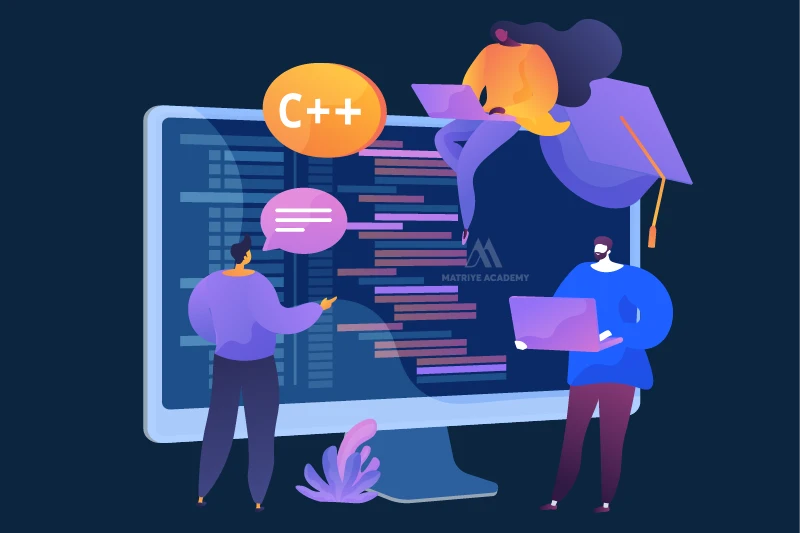





































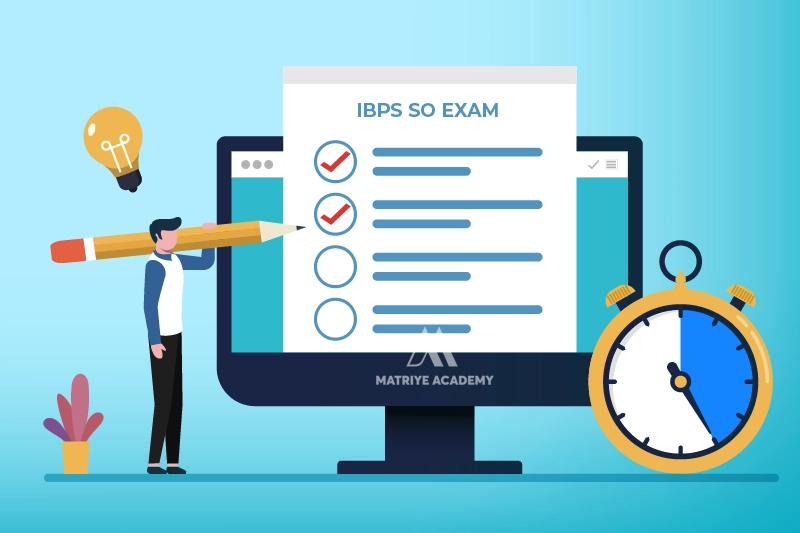
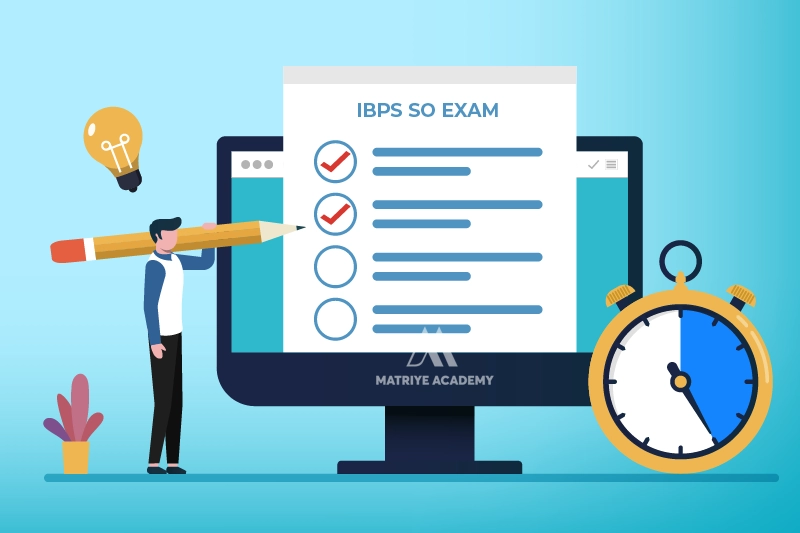

















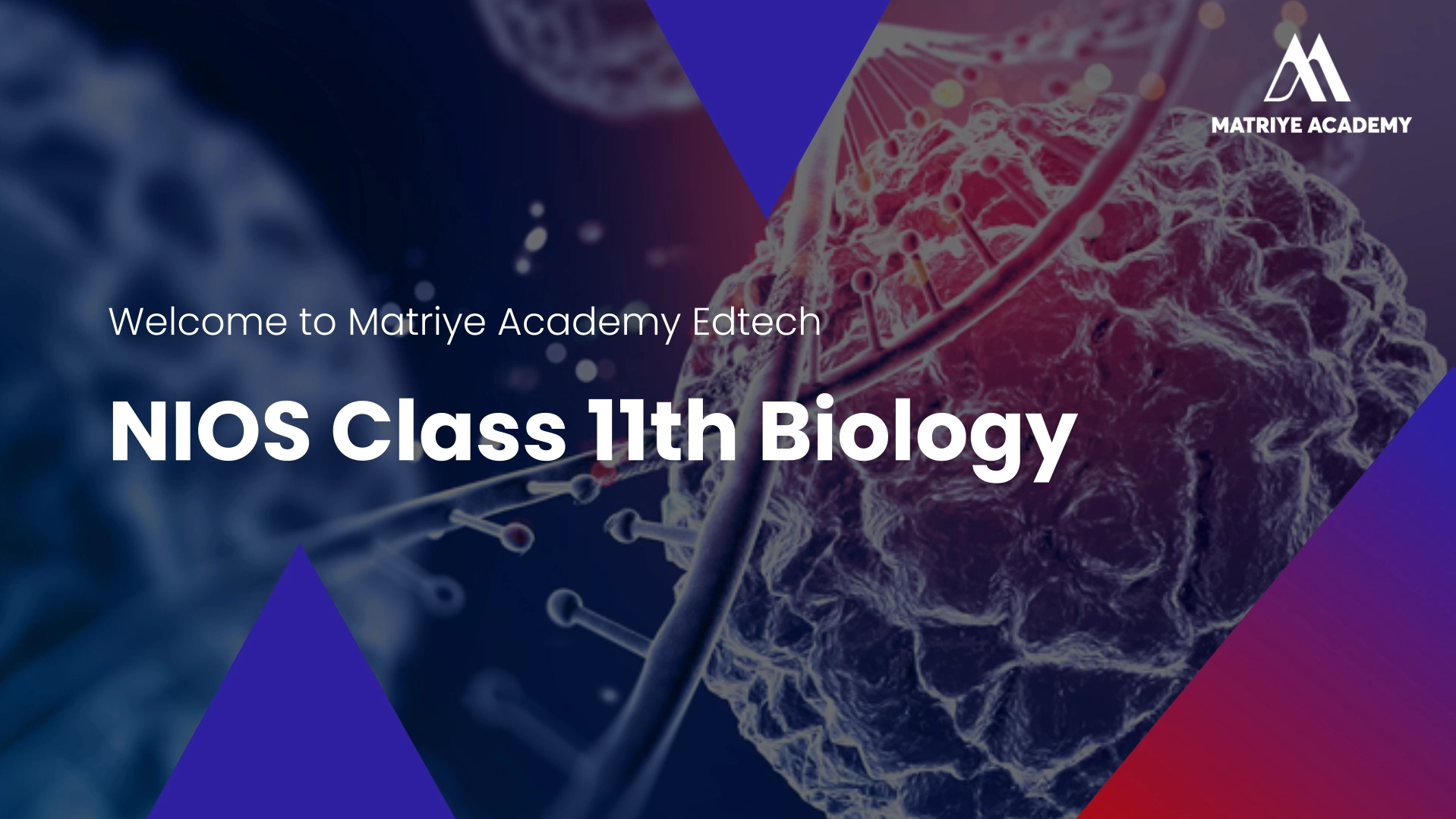



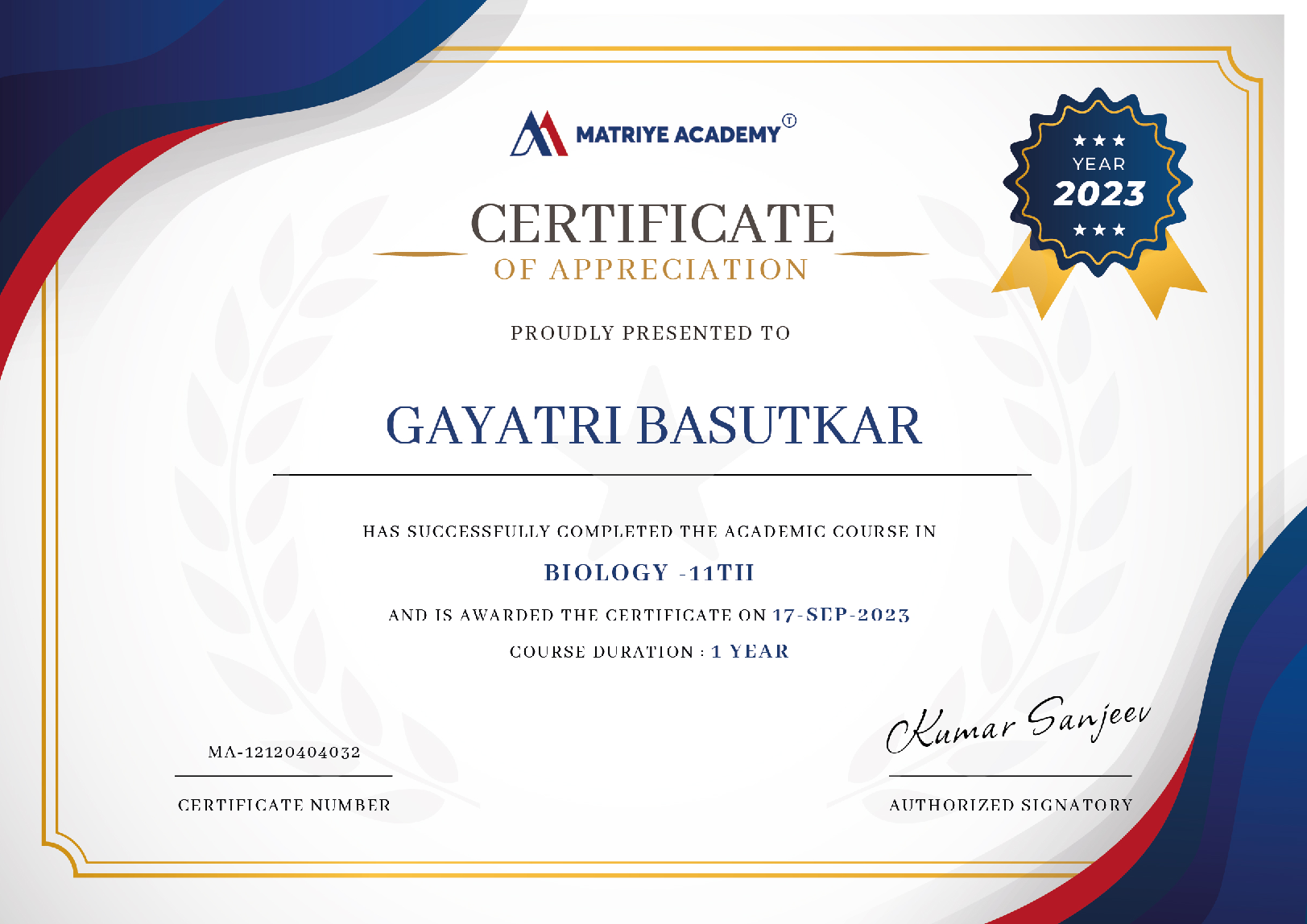
Leave A Comment